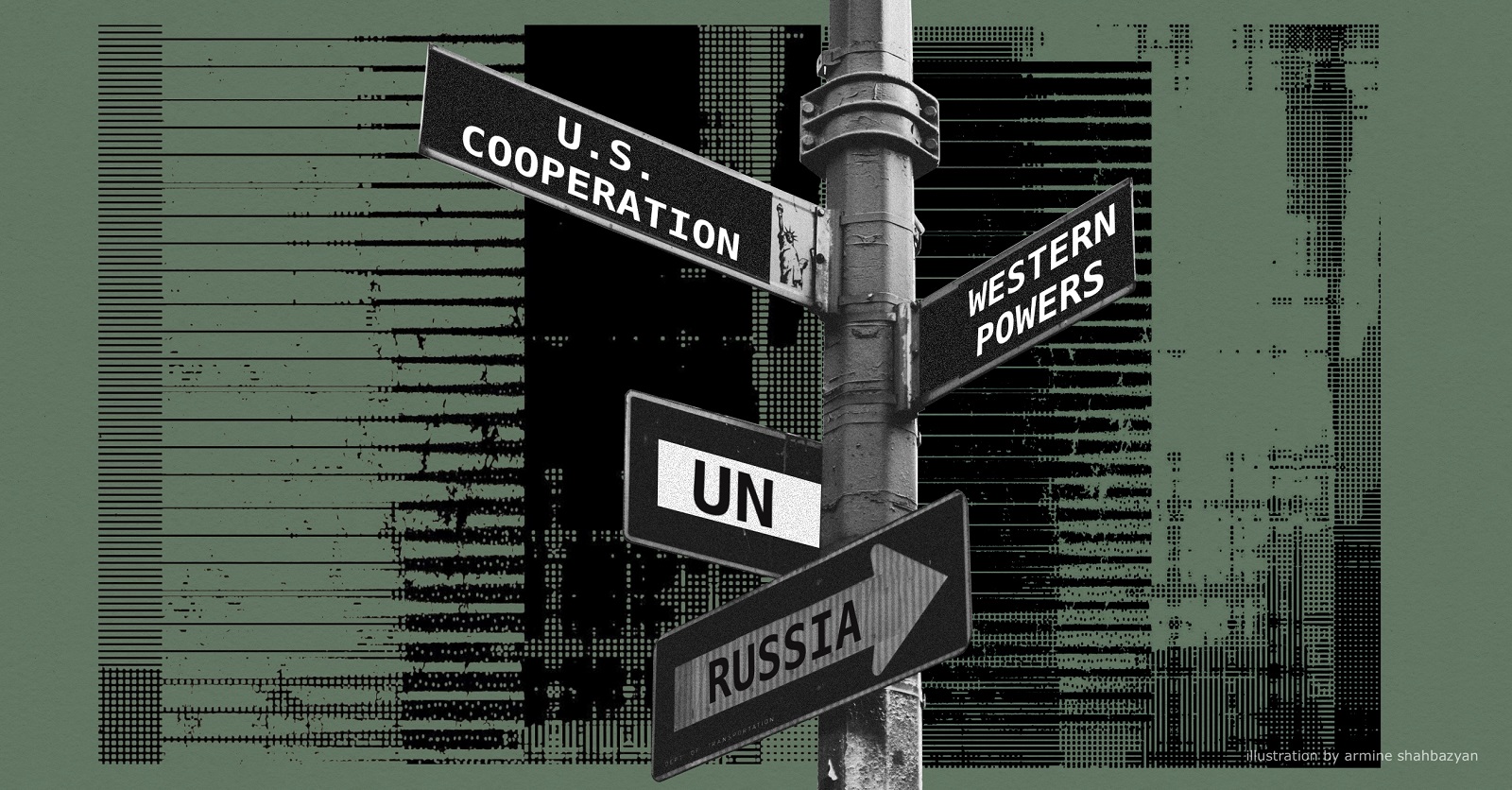
Following the military defeat in 2020 and the ethnic cleansing of Artsakh in 2023, Armenian political actors are pondering the directions to take to preserve the remnants of sovereignty and strengthen the foundations of the state. Disappointed by Russia’s shifts, they embarked on new initiatives, leading them to turn toward the European Union and the United States.This development has been met with considerable relief by significant segments of Armenian society, but it has also caused great concern among others. It is as if Armenia is at a pivotal point in its history. Currently, four questions are on the Armenian diplomatic agenda.
Where are we exactly? The defeat in the Forty-Four Day War, the Azerbaijani aggression in 2022 against Armenian sovereign territory, and the ethnic cleansing of Artsakh in 2023 have left Armenians in deep distress. Despite the weight of these challenges, Armenian leaders have not remained idle. Since 2018, especially in the wake of tragic events in the 2020s, Armenia has drawn closer to Europeans and Americans. With Europe, particularly France, a relationship of trust has gradually developed. Armenia recognized the territorial integrity of Azerbaijan, which includes Nagorno-Karabakh, and renounced all claims against its neighbor. Yerevan ratified the Rome Statute of the International Criminal Court. In return, the European Union deployed an observation mission on Armenian territory along the Armenian-Azerbaijani border. Brussels also allocated loans of 2.5 billion euros over five years in exchange for structural and democratic reforms. Brussels and Yerevan engage more closely, either bilaterally or through the European Political Community (EPC) of which Armenia is a member. Multilateral European meetings are held in Armenia. Moreover, European delegations and ministers from European governments regularly visit Yerevan to commend the progress in the, although imperfect, democracy of the republic and make reassurances about the defense of its territorial integrity. Yerevan now benefits from the European Peace Facility allowing it access to military equipment from EU member states. In this regard, France paved the way for defense cooperation with Armenia, inspiring other European states such as Germany, the Netherlands and Greece.
With the United States, the level of bilateral relations is more related to national security than the liberalization of the regime. Armenia increased its efforts to enhance cooperation between the security agencies of both countries. Delegations from the United States regularly visit Armenia, and vice versa, notably, Armen Grigoryan, the Secretary of the Security Council, often visits Washington. In 2023, Armenia also launched its first information satellite, Hayasa 1 using the American SpaceX Falcon-9 rocket, suggesting motives beyond observing the stars. Yerevan and Washington conducted joint maneuvers in September 2023, only a year after Azerbaijan’s aggression and Russia’s abandonment of all commitments to its Armenian ally. Additionally, Armenia initiated the establishment of a foreign intelligence service in 2023, with a high probability that the United States will be overseeing the process to weaken ties between Armenia and Russia in terms of security and espionage. In 2023, Washington provided urgent humanitarian aid of $11.5 million for Artsakh refugees after Samantha Power, director of the U.S. Agency of International Development, visited Yerevan. On both sides of the Atlantic, Europeans and Americans express their commitment to strengthen Armenian democracy at all costs.
But all of this is a gamble, and that is the second question on Armenia’s diplomatic agenda: Why this caution? For two reasons. On one hand, it is a gamble concerning the history and the impact that Western powers have on the people caught in the turmoil of international relations. The idea of Armenia being abandoned by Western powers is not shocking to Armenians. On the contrary, history has ample evidence to prove it: from the Hamidian massacres at the end of the 19th century to the abandonment of the Armenian refugees of Alexandretta and the question of Armenians during the Treaty of Lausanne, the perceived hypocrisy of the Europeans during the genocide of 1915 and the fall of the First Republic of Armenia in 1920, there is indeed reason to ask questions about the reliability of the West. More broadly, the trials that other people face during their contemporary history, particularly in their asymmetrical relationship with the West serve, if further proof were needed, as evidence of the double standards of Western diplomatic offices, ready to turn their backs on struggling nations after encouraging them to emancipate themselves.
On the other hand, it is a gamble concerning the ability of the government led by Nikol Pashinyan, democratically elected in 2018 and re-elected in 2021, to overcome both internal and external challenges. This occurs within a climate of potential instability, with forces of the old regime discrediting the current administration. Additionally, there exists a constant state of tension with Azerbaijan, which engages in brinkmanship and fosters conflict while portraying itself as an advocate for bilateral peace. Faced with these two distinct fronts yet parallel interests, both playing into Russia’s interests – with Moscow willing to exploit Baku to threaten Armenia and also ready to manipulate the forces of the old regime to overthrow the current authorities – Armenia is navigating precarious ground as it seeks progress with the West.
In these precarious conditions, where power, based on democratic foundations, must stay on course despite external storms (Azerbaijan) and internal challenges (revanchist parliamentary opposition willing to collaborate with a foreign power), what are the challenges that Armenia is facing?
To be continued…






